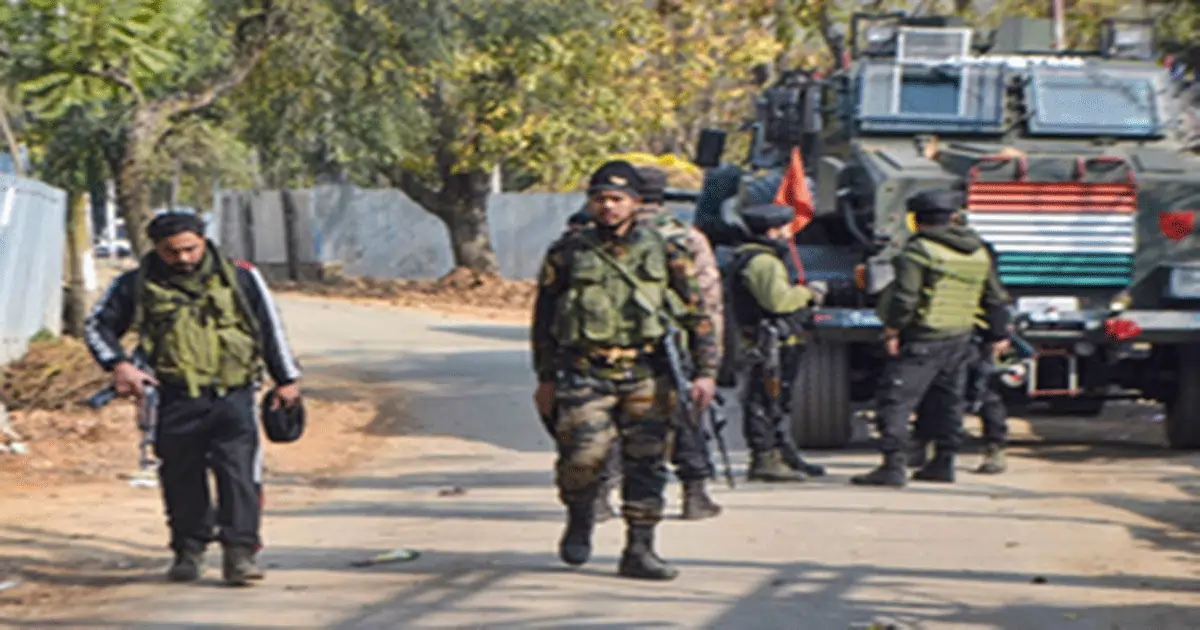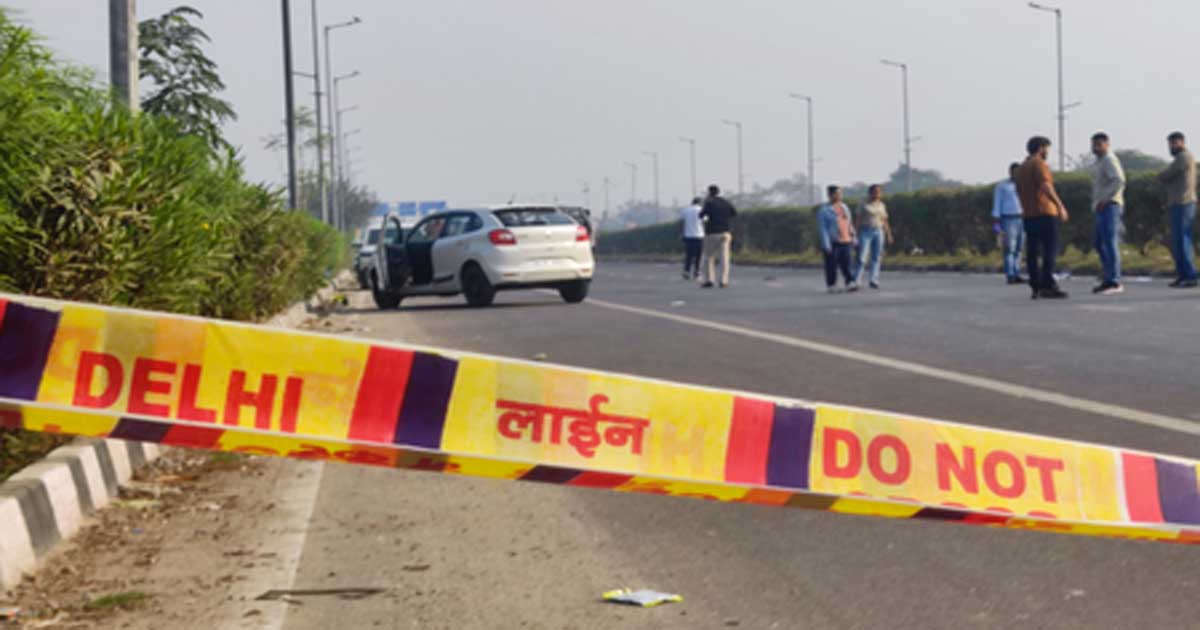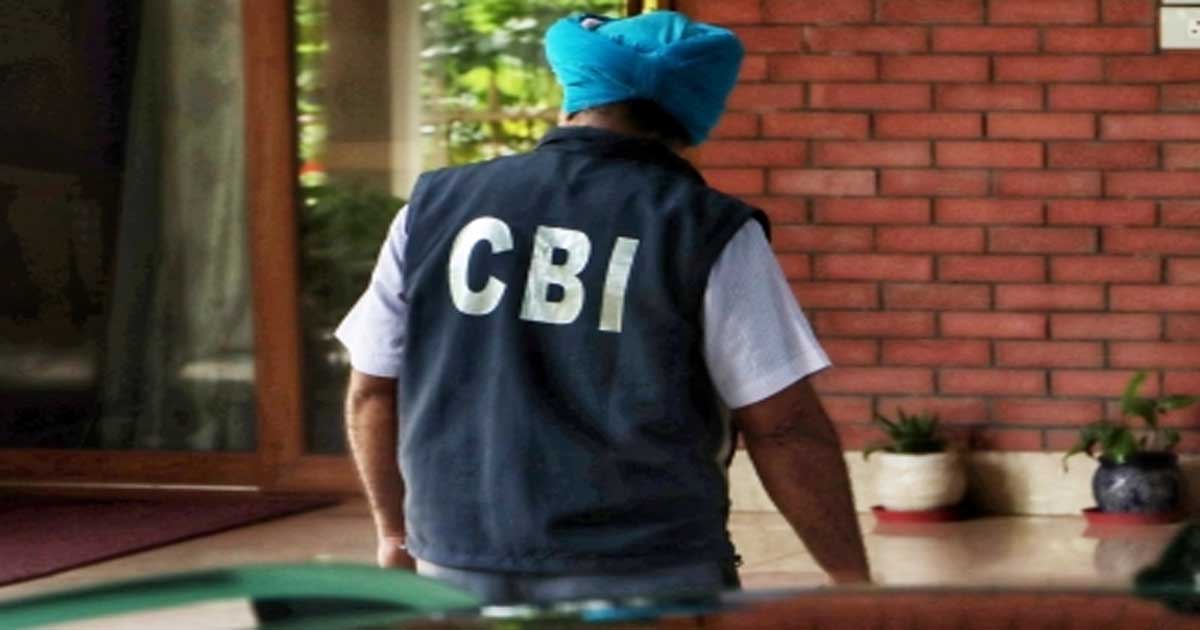Crime
Operation against holed up terrorists continues in J&K’s Kathua

Jammu, March 24: The operation against holed up terrorists in Jammu and Kashmir’s Kathua district continued on Monday. However, there was no exchange of fire between the security forces and terrorists in the night.
DGP Nalin Prabhat accompanied by Bhim Sen Tuti, IGP (Jammu) reached the operation site on Sunday evening to supervise the operation against holed-up terrorists in Sanyal village of Hiranagar tehsil which is barely 4 Km away from the International Border (IB) with Pakistan.
“Not a single fire was exchanged between the holed-up terrorists and the security forces after 7 p.m. yesterday. The entire forested area, where 3 to 5 terrorists are believed to be hiding, has been surrounded,” officials said.
A 7-year-old girl was injured on Sunday during the firing exchanges between the security forces and the terrorists.
She was immediately shifted to the hospital. Doctors at the hospital said her condition was stable.
Reports reaching here said that a local woman, Anita Devi and her husband Ganesh Kumar had spotted the terrorists when they had gone into the forested area to collect firewood.
Based on this input, joint forces started a CASO (Cordon & Search Operation) in Sanyal village near the IB in the Hiranagar sector of Kathua district.
“As the joint forces, including the Army, the Special Operations Group (SOG) of the J&K Police and the Central Reserve Police Force (CRPF), closed on hiding terrorists, they were fired at, triggering an encounter,” officials said.
The IB between India and Pakistan is situated in the district, and in the past also, terrorists have attempted to sneak into the Indian side over the border.
Recently in Kathua, three civilians — Darshan Singh, 40, Yogesh Singh, 32, and Varun Singh, 14, — went missing on March 5 while returning from a wedding in Marhoon village.
Their bodies were discovered on March 8 near a waterfall on the edge of an escarpment in a wooded area following an extensive search involving the Army, police, drones, and sniffer dogs.
“The brutal killing of three relatives by terrorists in the Bani area of Kathua is extremely sad as well as a matter of great concern,” Union Minister Jitendra Singh said in a post on X.
In the wake of the incident, Union Home Secretary, Govind Mohan came to Jammu on March 9 and chaired a high-level security meeting regarding the safe and peaceful Amarnath Yatra beginning on July 3 and the Udhampur-Srinagar-Baramulla Rail Link (USBRL) which will soon be inaugurated.
The Home Secretary laid emphasis on the security situation in the Jammu division while giving detailed directions on the overall security situation in J&K.
Initially confined to Poonch and Rajouri districts, terrorist activities have spread to other areas of Jammu, including those that were relatively free from such incidents until a few years ago like the Chenab Valley, which was declared militancy-free and Udhampur and Kathua.
In the past, highly trained terrorists have been ambushing vehicles and using grenades and armour-piercing bullets, as well as M4 assault rifles.
Sources said the use of sophisticated weapons by terrorists indicates a significant escalation in the threat level. Analysts say that over the last couple of years, the Pir Panjal region dividing Kashmir Valley from Jammu has witnessed a surge in militancy as anti-terror operations in Kashmir have pushed terrorists to the mountains where they hide and wait for the right moment to carry out attacks on security forces.
Crime
Navi Mumbai: Four Booked for Assault and Sexual Harassment Of 18-Year-Old Girl In Sanpada

Navi Mumbai, October 23: Four persons have been booked for allegedly sexually harassing and assaulting an 18-year-old girl after forcibly entering her residence in Sanpada, police said on Thursday.
According to officials from the Sanpada Police Station, the incident took place on the night of October 20 when one of the accused, who had earlier claimed to be in love with the victim, arrived at her home along with three associates.
The group allegedly barged into the house, confronted the girl, and touched her inappropriately. When the victim resisted and asked them to leave, one of the men reportedly attacked her with an iron rod, causing injuries.
During the altercation, the victim’s brother tried to intervene but was also physically assaulted by the accused. The group fled the scene soon after the incident, police said.
Following a complaint, a case was registered against four persons, two of whom are yet to be identified. They have been booked under relevant sections of the Bharatiya Nyaya Sanhita (BNS) for sexual harassment, assault, and house trespass, officials confirmed.
As of Thursday, no arrests have been made in the case. The police have launched a manhunt to trace the accused, and further investigation is underway.
Authorities said the statements of the victim and witnesses have been recorded, and medical examination reports are awaited.
“The accused will be arrested soon. We are verifying their backgrounds and gathering evidence,” an officer from Sanpada Police Station said.
Crime
Bihar polls: Delhi Police eliminates ‘sigma gang’; kingpin carried reward of Rs 25,000

New Delhi, Oct 23: Hours after executing one of the biggest crackdowns on the inter-state crime, the Delhi Police made some startling disclosures about the Bihar gangsters’ intention and motive to disrupt the upcoming Assembly elections and also how the four criminals found a ‘safe haven’ in the capital.
Addressing a press conference, Surendra Kumar, Joint CP of Delhi Police Crime Branch, said that the gang of four criminals had been hiding in the national capital for the past several days and were traced and confronted after receiving inputs from Bihar Police about their whereabouts.
He told the press that the Sigma gang’s kingpin, Ranjan Pathak, carried a reward of Rs 25,000 and was wanted in at least eight criminal cases.
The four gangsters of the notorious Sigma gang, responsible for some high-profile killings in Bihar, were also plotting to conduct a major criminal operation during the upcoming Assembly elections, the senior cop told the press.
According to police, they also committed a murder in Bihar after the election code of conduct came into effect on October 6.
He said that further investigations are underway and the police are interrogating known acquaintances of the accused to dig deep into the gangsters’ motive.
The sigma gang members were killed in an encounter with Delhi police, in the wee hours of Thursday, as the latter launched surveillance on key inputs from Bihar Police and laid a trap in the area. A pistol was recovered from the accused, and a stolen car was recovered.
During the police operation in North-West Delhi, the criminals opened fire at the police team and were injured in retaliatory gunfire. They were taken to a hospital in Rohini, where doctors declared them dead.
The operation was carried out by a joint team of the Delhi Police Crime Branch and the Bihar Police.
The four most-wanted were identified as Ranjan Pathak (25), Bimalesh Mahato alias Bimalesh Sahni (25), Manish Pathak (33), and Aman Thakur (21). They were all residents of Sitamarhi district in Bihar and were part of the ‘Sigma Gang’.
Crime
Odisha Law Minister welcomes CBI probe into SI recruitment scam

Bhubaneswar, Oct 23: Odisha Law Minister Prithiviraj Harichandan on Thursday welcomed the State Government’s decision to order a CBI investigation into the multi-crore police Sub-Inspector (SI) recruitment scam, terming it a major step towards ensuring transparency and accountability in the recruitment process.
Speaking to media persons, Harichandan said, “The Chief Minister has already announced the CBI probe. This reflects the government’s firm intent to maintain complete transparency in the process of recruitment. The ongoing recruitment drive will continue with the highest standards of fairness and integrity.”
He further added, “The government is committed to bringing in a transparent system, and the commission will play a key role in ensuring a clean and credible recruitment mechanism. The reforms being implemented will bring visible change in the system.”
Harichandan expressed confidence that no irregularities will be tolerated and the CBI enquiry will strengthen public trust in the government’s recruitment process.
It is pertinent here to mention that Odisha Chief Minister Mohan Charan Majhi on Wednesday ordered a CBI probe into the multi-crore SI recruitment examination scam.
According to the official statement issued by the Chief Minister’s Office (CMO), serious allegations of massive irregularities and corruption had surfaced in the Odisha Police SI recruitment examination. The investigation was initially handed over to the Crime Branch-CID of the state police.
Preliminary findings suggest the scam may have links extending beyond Odisha, particularly to Andhra Pradesh and West Bengal.
This apart, it is suspected that inter-state organised criminal networks could also be involved in this multi-crore scam.
“Keeping in view these developments, the Chief Minister decided to entrust the probe to the CBI to ensure a thorough investigation, complete exposure of the scam, and stringent punishment for all those involved in the scam,” said the CMO.
Additionally, the state government is also mulling to set up a permanent commission for the selection of personnel in the police and other uniformed services to ensure transparency and accountability in future recruitment. It is worth noting that so far 123 accused perople involved in the SI recruitment scam have so far beearrested n by the Odisha Police.
-

 Crime3 years ago
Crime3 years agoClass 10 student jumps to death in Jaipur
-

 Maharashtra1 year ago
Maharashtra1 year agoMumbai Local Train Update: Central Railway’s New Timetable Comes Into Effect; Check Full List Of Revised Timings & Stations
-

 Maharashtra1 year ago
Maharashtra1 year agoMumbai To Go Toll-Free Tonight! Maharashtra Govt Announces Complete Toll Waiver For Light Motor Vehicles At All 5 Entry Points Of City
-

 Maharashtra1 year ago
Maharashtra1 year agoFalse photo of Imtiaz Jaleel’s rally, exposing the fooling conspiracy
-

 National News1 year ago
National News1 year agoMinistry of Railways rolls out Special Drive 4.0 with focus on digitisation, cleanliness, inclusiveness and grievance redressal
-

 Maharashtra11 months ago
Maharashtra11 months agoMaharashtra Elections 2024: Mumbai Metro & BEST Services Extended Till Midnight On Voting Day
-

 National News1 year ago
National News1 year agoJ&K: 4 Jawans Killed, 28 Injured After Bus Carrying BSF Personnel For Poll Duty Falls Into Gorge In Budgam; Terrifying Visuals Surface
-

 Crime1 year ago
Crime1 year agoBaba Siddique Murder: Mumbai Police Unable To Get Lawrence Bishnoi Custody Due To Home Ministry Order, Says Report












